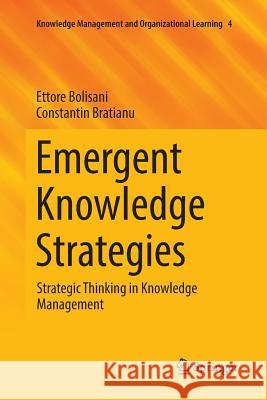Emergent Knowledge Strategies: Strategic Thinking in Knowledge Management » książka
topmenu
Emergent Knowledge Strategies: Strategic Thinking in Knowledge Management
ISBN-13: 9783319869070 / Angielski / Miękka / 2018 / 200 str.
Kategorie:
Kategorie BISAC:
Wydawca:
Springer
Seria wydawnicza:
Język:
Angielski
ISBN-13:
9783319869070
Rok wydania:
2018
Wydanie:
Softcover Repri
Ilość stron:
200
Waga:
0.32 kg
Wymiary:
23.39 x 15.6 x 1.19
Oprawa:
Miękka
Wolumenów:
01
Dodatkowe informacje:
Wydanie ilustrowane











